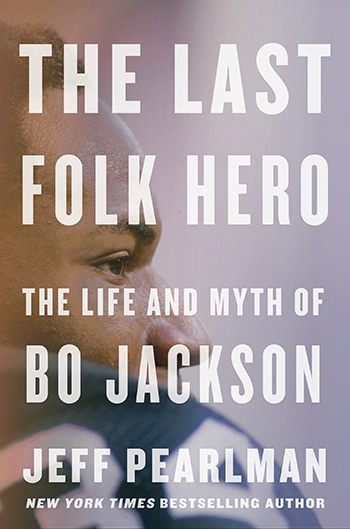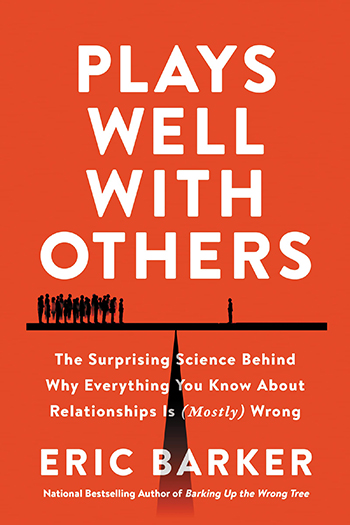Book: Sodom and Gomorrah - by Derek Walker

Explore "Judgment" with insightful episodes like "Book: Sodom and Gomorrah - by Derek Walker", "Nick Kyrgios ON: How to Deal with Being Misunderstood & Stop Trying to Live Up to People's Expectations", "#175: Shreyas Doshi: Better Teams, Better Products", "Judgment" and "As in the Days of Noah" from podcasts like ""Oxford Bible Church - Living in the Last Days (audio)", "On Purpose with Jay Shetty", "The Knowledge Project with Shane Parrish", "AWR - Barnaamijka Adventist World Radio" and "Oxford Bible Church - Living in the Last Days (audio)"" and more!


Tired of being misunderstood all the time?
Are you looking for ways to stop living up to other people's expectations?
Then this podcast is for you.
Today, Jay Shetty welcomes world-ranking professional tennis player Nick Kyrgios. Nick burst onto the pro tennis scene in 2012 after a prolific junior tennis career. Since his start he has captivated fans with a larger than life personality, passion for the game, and unpredictability. Kyrgios has won 7 singles titles and 4 doubles titles in his career, but 2022 marked the first time Kyrgios displayed his dominance making it to his first Grand Slam Final, winning 3 singles titles, and 3 doubles titles. He also reached the Quarter Finals of the 2022 US Open beating then-ranked No. 1 Daniil Medvedev and is one of the few players on Tour who have beaten the Big Three (Novak Djokovic, Roger Federer, Rafael Nadal) at least once.
In this conversation, Nick opens up about how his strong personality online has sparked hate and negativity - how misunderstood his persona is and how different he is with friends and family.
Nick also briefly talks about dark times, dealing with depression and addiction and turning the most difficult phase of his life into a pivotal moment to have the best year of his life when he reached the Wimbledon final. He also talks about looking at life beyond tennis and what awaits him in the future.
In this episode, you will learn:
A truly inspiring story begins with a challenge and ends with a triumph, and Nick has just proven to us that success isn't elusive when you dream big and work hard for it.
With Love and Gratitude,
Jay Shetty
What We Discuss:
Episode Resources:
Want to be a Jay Shetty Certified Life Coach? Get the Digital Guide and Workbook from Jay Shetty https://jayshettypurpose.com/fb-getting-started-as-a-life-coach-podcast/
See omnystudio.com/listener for privacy information.

Calling on more than two decades of experience working with some of the biggest companies in tech, Shreyas Doshi joins The Knowledge Project for a deep dive into the connection between building a solid team and building a better product. He also discusses the three levels of product work, the origins of conflict on your team, the difference between measurement and evaluation, the benefits and drawbacks of a writing culture, decision-making, growing your competence, and the agency/talent matrix.
Doshi is best known as the leader of some of the most successful products from Stripe, where he was one of the company’s first product managers. He also led and grew several products at Twitter, Google, and Yahoo. He currently advises fast-growing startups on strategy, scaling, and product management. Doshi is also a frequent angel investor and has privately coached product managers from Amazon, Meta, Salesforce, Uber, and LinkedIn.
--
Want even more? Members get early access, hand-edited transcripts, member-only episodes, and so much more. Learn more here: https://fs.blog/membership/
Every Sunday our Brain Food newsletter shares timeless insights and ideas that you can use at work and home. Add it to your inbox: https://fs.blog/newsletter/
Follow Shane on Twitter at: https://twitter.com/ShaneAParrish
Our Sponsors:
MetaLab: Helping the world’s top companies design, build, and ship amazing products and services. https://www.metalab.com
Aeropress: Press your perfect cup, every time. https://aeropress.com



Bert Kreischer is a stand-up comic, podcaster, and actor. He's the host of "The Bertcast" podcast and YouTube cooking program "Something's Burning." He's also the co-host of the "2 Bears, 1 Cave" podcast with fellow comedian Tom Segura. Look for his new movie, "The Machine", on May 26.
www.bertbertbert.com


In the 80s and 90s, few sports stars loomed as large as Bo Jackson. A Kansas City Royal and an Oakland Raider, he was the rare athlete to play two professional sports. His strength and power seemed supernatural. He soared into end zones, ran the 40-yard dash in 4.13 seconds, hit meteoric home runs, and broke baseball bats over his head for fun. And those were just his documented exploits. Because Bo played in an era before smartphones, stories circulated — that could never be entirely proven or disproven — that he was capable of even more impressive feats. The guy was the stuff of legends.
For this reason, Jeff Pearlman has entitled his new biography of Bo: The Last Folk Hero. Today on the show, Jeff and I talk about Bo's Paul Bunyan-esque stature, and the real life behind the legend. We discuss both the flaws and the strengths of Bo Jackson, and how natural talent can be both a hindrance and a help, as we trace his life from an impoverished upbringing as one of ten kids, to how he managed to secure an arrangement where he got to play two professional sports. Jeff explains how Bo never liked to practice — because he was so naturally gifted he didn't need to — why Bo didn't take the deal when the Yankees tried to draft him out of high school, the flash-bulb moments he achieved in college and the pros, how a hip injury ended his football days but didn't entirely finish him off for baseball, and why, after such a neon career, Bo has largely disappeared from the public eye.


David Heath and Randy Goldberg saw an opportunity to disrupt a long dormant—and arguably boring sector...socks. They met at a startup in their 20s, each already had their own side hustles before they hatched a plan to launch a business together. Randy and David didn’t initially intend to get into the sock business, but in 2011, David read that socks are the most requested clothing item at homeless shelters. That led them to start a company they called Bombas based on a promise: for each pair of socks a customer bought, another would be donated to the homeless. Within about ten years, their one-for-one start-up turned into a quarter of a billion dollar business that has expanded into sweatshirts, underwear, and t-shirts.
Listen to The Great Creators launching September 20th
See Privacy Policy at https://art19.com/privacy and California Privacy Notice at https://art19.com/privacy#do-not-sell-my-info.



We've all heard by now just how important strong relationships are to our health and well-being. But a lot of the common advice and conventional wisdom out there about how to build stronger relationships doesn't end up taking us closer to that goal.
My guest today has spent years sorting through what really builds better friendships, reignites love, and helps people get closer to others, and he shares these research-backed insights in his new book: Plays Well with Others: The Surprising Science Behind Why Everything You Know About Relationships Is (Mostly) Wrong. Eric shares what he's learned today on the show, beginning with why we're good at figuring out someone's personality from the moment we meet them, but bad at reading their thoughts and feelings, and how to get better at the latter by making other people more readable, as well as how to make a better first impression yourself. We then turn to what makes friendship a unique relationship that makes us uniquely happy, and the two "costly signals" that most develop friendship. We also get into why friends we feel ambivalent about are actually worse for us than outright enemies. We spend the last part of our conversation on how the modern age is both the worst and the best time for marriage, and how the key to ensuring that yours is one of the happiest in history is maintaining positive sentiment override.









Stay up to date
For any inquiries, please email us at hello@podcastworld.io